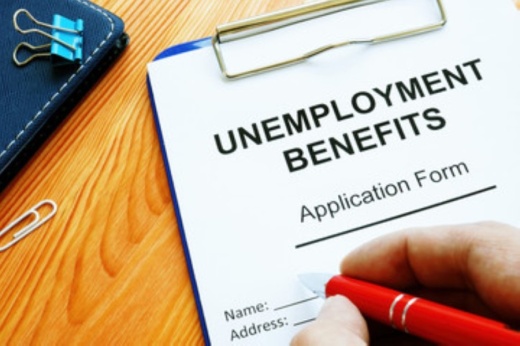According to Jankowski, while the U.S. has recovered 7 million jobs between May and July, the country as a whole is still down 15 million jobs—nearly twice the number of jobs lost at the peak of the Great Recession.
"From January 2014 through March or April of 2020, we had created about 15 million jobs and then we lost them," Jankowski said during a July 22 webinar. "In essence, we're back to where we were in 2014; we've essentially lost over six years worth of job growth during this downturn."
Likewise, while the unemployment rate in the U.S. peaked during the COVID-19 pandemic at 14.7% in May and has since dropped to 11.1%, that rate is still three times that of the country's pre-pandemic unemployment rate. Since the pandemic began in March, more than 51 million initial claims for unemployment insurance have been filed by Americans.
"That illustrates the level of pain [in our country's economy]," Jankowksi said. "Probably what's most disturbing ... is that we're still well above 1.3 million [initial] claims every week. You would hope that as we've opened the economy and employers have started hiring or started calling people back, that those initial claims would be trailing off or be below that, but the fact that we're still having 1 million or more people file claims for unemployment insurance every week shows that the recovery is on very, very wobbly legs."
In terms of continuing claims—or Americans who have filed for unemployment insurance for two or more consecutive weeks—the U.S. has dropped from 22.7 million continuing claims at the pandemic's peak to 18.3 million in July.
"8.3 million workers out there are still unemployed, are still depending upon that transfer coming into their account every week so they can continue to support their family," Jankowski said. "Yes, it's down from 22.7 [million] at the peak, but that's still a huge number. ... it's still three times what we had during the peak of the Great Recession."
In the Greater Houston area, initial claims for unemployment insurance—while still high—have likewise decreased from 76,007 claims filed the week of April 4 to 29,867 claims filed the week of July 4, according to Texas Workforce Commission data.
"We are seeing some progress. At the height of the pandemic in Houston we were at between 65,000 and 76,000 people filing on a [weekly] basis, but my concern is, once again we have over 20,000 people who are filing initial claims, and we had a slight uptick in the last week for which we had data," Jankowski said. "So maybe the reopening is having fits and starts, and I think we are seeing it's having fits and starts, especially [as it relates to] Gov. [Greg] Abbott scaling restaurants back from 75% to 50% operating capacity and the increased number of COVID-19 cases."
Between March and April, the Greater Houston area lost 350,200 jobs; between May and June, while the area added 133,200 of those jobs back to the economy, 217,400 remain left to recoup. Additionally, Jankowski said the GHP is tracking nearly 200 employers in the Greater Houston area that have announced layoffs. These companies range from oil and gas companies to restaurants to theater companies and hotels.
For continuing claims, the Greater Houston area is still well above where the region would be under normal circumstances, Jankowski said.
"In June we still had close to 260,000 workers ... that are continuing to ask for assistance from the government because they are out of work and are not collecting a paycheck," he said. "They've been out of work two or more weeks—some of them probably been out 10 or 12 weeks, considering this started in March. At a normal level, you would expect to have maybe 20,000 or 30,000 claims. ... This is probably still 230,000 claims above where it should be."
However, despite the progress that has been made over the last couple of months, both in the U.S. and local economies, Jankowski said the recent surge in COVID-19 cases could derail the current trajectory.
"In the very first early stages we started to see a little bit of a hint of a bit of recovery with reopening, but that was prior to this recent outbreak of COVID-19, so we'll see how that impacts [the economy]," he said. "As COVID-19 started surging, we see that optimism dropped to maybe just a little bit of a pickup, but now we definitely don't see the same level of optimism that we saw in early June for the economy."
Jankowski said elevated unemployment insurance claims can be expected in the next few weeks, if not months, based on Google Trends for the week of July 12 and the number of people searching the term "unemployment benefits."





